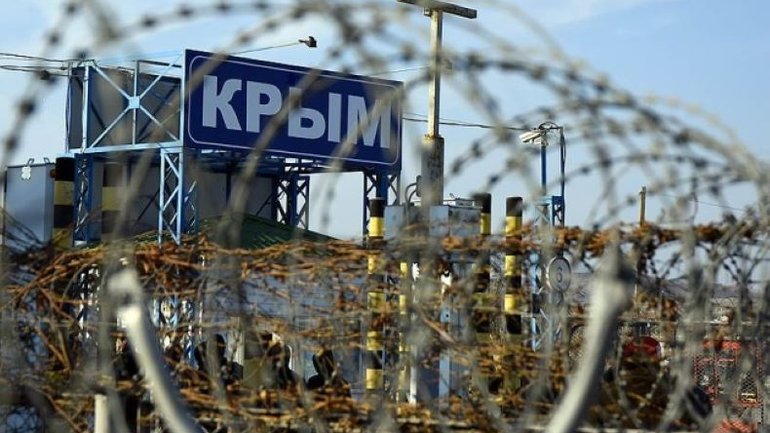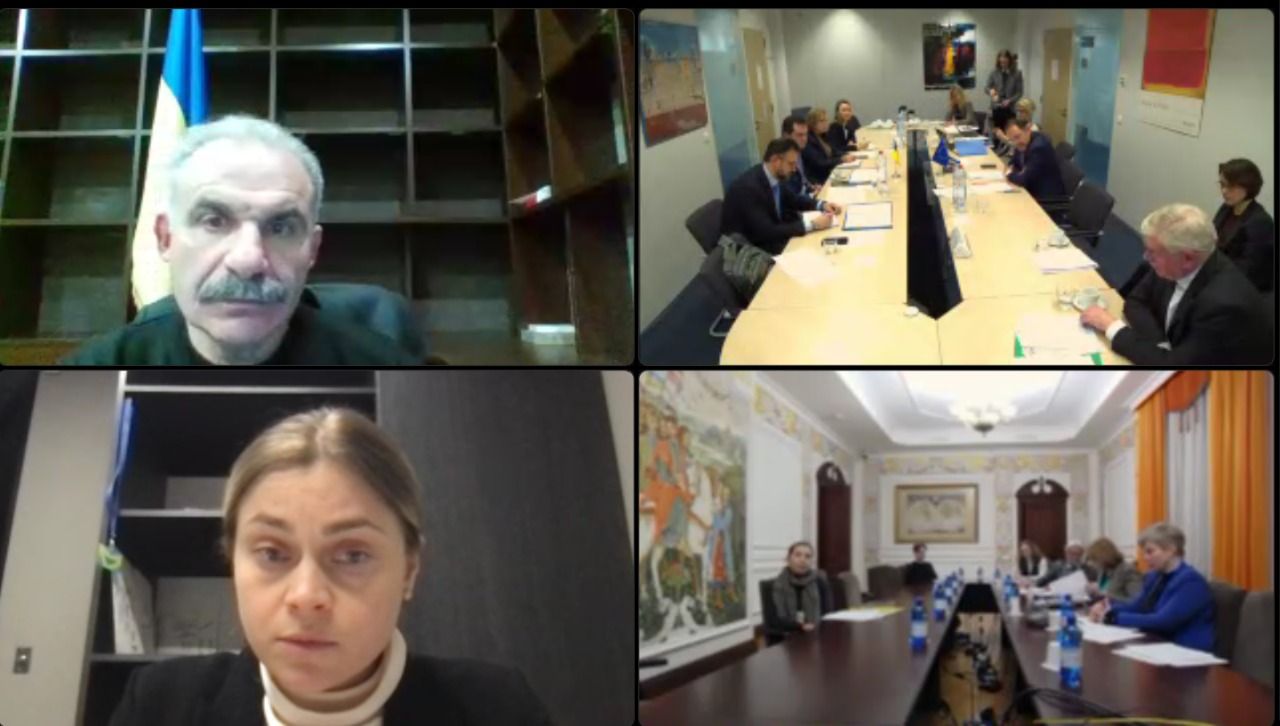Russia brutally persecutes indigenous peoples of Crimea and religious communities, - report of the tenth round of EU-Ukraine consultations

This is reported by the website of the State Service of Ukraine for Ethnic Policy and Freedom of Conscience.
This year, the consultation round discussed human rights issues, in particular national minorities, Indigenous peoples and religious communities in the territory of the temporarily occupied Crimea and the city of Sevastopol, which significantly worsened after the start of a full-scale invasion of the Russian Federation in Ukraine.

These include harassment of Crimean Tatars and believers of various religious traditions in Crimea, desecration of historical monuments of the Crimean Tatar people, and illegal conscription of persons belonging to indigenous peoples and national minorities of Ukraine into the army of the invader state.
The Russian Federation continues the practice of prosecuting for allegedly "illegal missionary activities" those religious communities that refuse to obey centralized organizations loyal or controlled by occupation administrations. In particular, the Russian Federation continues to prosecute Jehovah's Witnesses, who have been considered an extremist organization in Russia since 2017 for unconvincing reasons, the consultation round noted.
In 2022, at least 12 believers of Jehovah's Witnesses were searched in the Russian Federation. One believer was sentenced to 2 years of probation with a probationary period of 3 years, three more believers of Jehovah's witnesses were sentenced to 6 years of imprisonment with restriction of movement for one year after serving their sentence, and they are also prohibited from publishing on the internet and mass media for seven years.
The Mejlis, the representative body of the Crimean Tatar people, is still banned by the Russian Federation as an extremist organization. On May 26, 2022, the appeal instance of the illegal occupation so-called "Supreme Court of Crimea" changed the previous sentence of Soviet human rights defender and dissident, Ukrainian politician, one of the leaders of the Crimean Tatar national movement Mustafa Dzhemilev, chairman of the Mejlis of the Crimean Tatar people in 1991-2013, sentencing him in absentia to 3 years in prison and a fine of 20 thousand Russian rubles.
Crimean Tatars continue to be subjected to systematic harassment and harassment by the Russian occupation authorities. According to the Crimean Tatar Resource Center, for nine months of 2022, 108 detentions (83 of them Crimean Tatars) and 138 arrests (104 Crimean Tatars) were recorded in the temporarily occupied Crimea.
Residents of the temporarily occupied Crimea, in particular representatives of national minorities and indigenous peoples of Ukraine, continue to be driven into the Russian army as conscripts and as part of the so-called "partial mobilization". As part of the Russian army, they are forced to participate in military operations against Ukraine. It is reported that in the temporarily occupied Crimea after Putin announced "partial mobilization" in the Russian Federation, representatives of the Crimean Tatar people were handed at least 1.5 thousand subpoenas. Such actions are a direct and gross violation of the Geneva Conventions of 1949 and other norms of international humanitarian law.
In 2022, the Russian authorities announced their intention to create a recreation area on the territory of the Southern Muslim cemetery in the city of Bakhchisarai, which is located near the Khan's Palace and is considered one of the oldest Muslim cemeteries in the city. This decision caused outrage among representatives of the Crimean Tatar community and poses a threat to the preservation of the historical and cultural heritage of the Crimean Tatar people on the territory of the Crimean Peninsula.
The Russian Federation continues the unauthorized destruction of the Khan's Palace in Bakhchisarai ‒ the most important object of the architectural heritage of the indigenous Crimean Tatar people, which is part of the object "historical outskirts of the capital of the Crimean Khans in Bakhchisarai" and is included in the UNESCO preliminary list. It is known that the Russian authorities destroyed the Golden Cabinet of Kirim Gerai Khan, dismantling the roof and stained glass windows and turning this monument into a new object with elements of historicity. These construction works are being carried out as part of the so-called" restoration work", which began in 2017. In 2021, UNESCO published a report stating that the Russian restoration of the Bakhchisarai Palace of Crimean Khans is disfiguring.
Among other things, the tense situation around the Crimean Diocese of the Orthodox Church of Ukraine was discussed during the consultations. Since 2019, the Crimean diocese has been under permanent risk of eviction from the Cathedral of the Holy Equal-to-the-Apostles Prince Volodymyr and Princess Olga (the main cathedral of the OCU in Crimea) in Simferopol due to an illegal decision of the Russian invaders' administration. The eviction of the Crimean diocese from the Cathedral in Simferopol is equivalent to the complete destruction of the OCU religious minority in Crimea. On October 28, 2022, the Cabinet of Ministers of Ukraine adopted Resolution No. 1213 on the transfer of this cathedral from the Autonomous Republic of Crimea to the state ownership of Ukraine. It is assumed that the cathedral will be transferred to the free use of the Crimean Diocese of the OCU and, after the de-occupation of the peninsula, will return to the ownership of the OCU.
Russia's illegal violent actions, and restrictive and repressive measures against civilians require a strong international response of condemnation and further strong support for Ukraine in its quest to return the temporarily occupied territories to its own control. After almost nine years of constant violations of human rights and fundamental norms of international law, it becomes clear that the de–occupation of the Crimean Peninsula is the most reliable measure to ensure the security and proper implementation of the rights of national minorities, Indigenous peoples and religious communities of the temporarily occupied Crimea-this is the position of the State Service of Ukraine for Ethnic Policy and Freedom of Conscience and the state of Ukraine.









